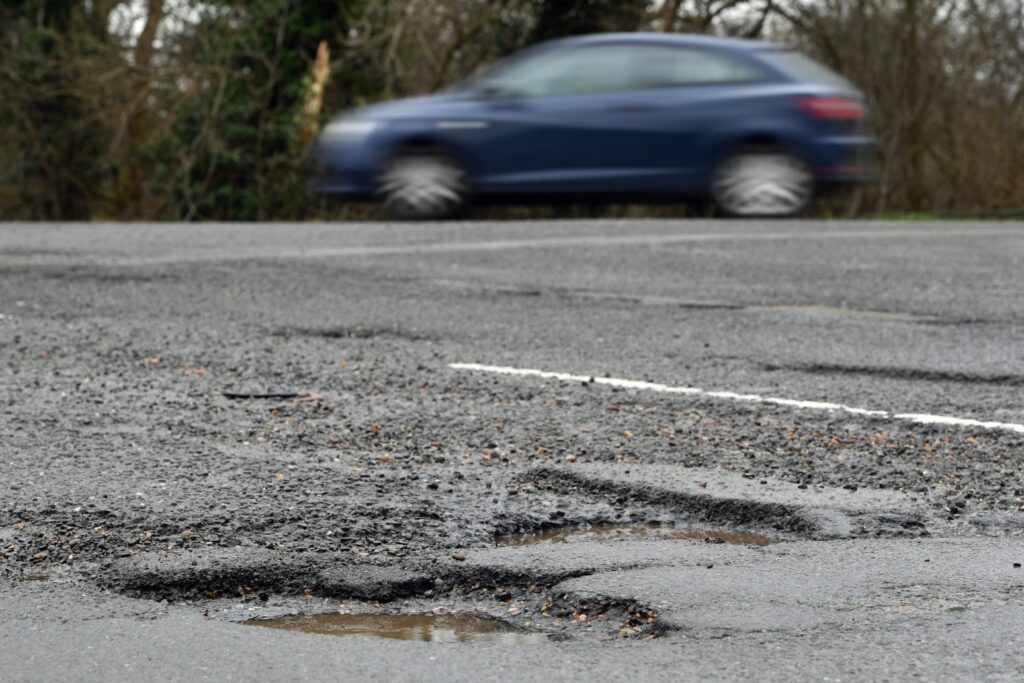This website uses cookies so that we can provide you with the best user experience possible. Cookie information is stored in your browser and performs functions such as recognising you when you return to our website and helping our team to understand which sections of the website you find most interesting and useful.
Attorney General reviewing whether Nottingham attacker sentence too lenient
26/01/2024

Valdo Calocane was handed a hospital order over the deaths of three people last summer
The Attorney General is considering whether judges should review the sentence of Nottingham knifeman Valdo Calocane after receiving a submission that it could be unduly lenient.
A judge handed down a hospital order to the 32-year-old, who has paranoid schizophrenia and whose pleas to manslaughter by diminished responsibility were accepted earlier this week.
The families of the three people he killed have reacted angrily to the sentencing and accused prosecutors of a “fait accompli” in accepting a manslaughter charge rather than perusing a murder verdict.
A spokesman for Attorney General Victoria Prentis confirmed her office had received a referral arguing the sentence administered on Thursday had been unduly lenient.
It gives the Cabinet minister 28 days from sentencing to review the request and decide whether to refer the case to the Court of Appeal to decide whether the sentence was appropriate.
Judge Mr Justice Turner said Calocane would “very probably” be detained in a high-security hospital for the rest of his life as he sentenced him for the “atrocious” killings, as well as the attempted murder of three others.
Emma Webber, mother of student Barnaby Webber, 19, who was killed alongside his friend Grace O’Malley-Kumar, also 19, and school caretaker Ian Coates, 65, on June 13 last year, was critical of the decision by the Crown Prosecution Service (CPS) to downgrade the charge from murder.
Speaking on the steps outside Nottingham Crown Court after the sentencing hearing concluded, Mrs Webber said the CPS only met the bereaved families on November 24.
She said: “We were presented with a fait accompli that the decision had been made to accept manslaughter charges.
“At no point during the previous five-and-a-half-months were we given any indication that this could conclude in anything other than murder.
“We trusted in our system, foolishly as it turns out.”
While accepting that the “murderer is mentally unwell”, Mrs Webber said the “pre-meditated” nature and “brutality” of the attacks indicated that they were the actions of “an individual who knew exactly what he was doing”.
The Attorney General’s considerations are unlikely to look at whether the correct charge was pursued in Calocane’s case, PA news agency understands.
Any person or institution can ask for a sentence to be reviewed if they have reason to think it is unduly lenient.
Prime Minister Rishi Sunak declined to back calls for a public inquiry into the circumstances that led to the Nottingham attacks but has promised to learn “any lessons” required from the case.
Mr Sunak told broadcasters during a visit to Scarborough in north Yorkshire on Thursday that it was “right” Calocane, who he branded a “very dangerous individual”, would “spend very probably the rest of his life” in a high-security hospital.
Asked whether he would order a public inquiry into any failings by the police, health authorities and the CPS, he said: “I think it is important that all the relevant agencies look back to ensure that all reasonable steps that could have been taken were taken and if there are any lessons to be learned that we do so.”
Despite being detained in hospital, Mr Justice Turner said Calocane still “remains dangerous”.
During the three-day hearing, the court heard that Calocane, a mechanical engineering graduate from the University of Nottingham, hid in the shadows in Ilkeston Road at around 4am on June 13, armed with a dagger, before beginning his attack on Mr Webber and Ms O’Malley-Kumar as they walked back to their student accommodation after an end-of-term night out.
After stabbing the pair tens of times, the court heard how Calocane “calmly” walked away, later going on to “lure” Mr Coates from his van before stabbing him 15 times.
Leaving Mr Coates dying in the street, Calocane stole his van where he proceeded to drive into pedestrians on his way into the city centre.
Calocane was arrested after being tasered around five minutes after the final victims were injured.
A search of his backpack found two other knives and a scaffolding pole.
The court heard that Calocane’s “serious” mental illness, which he was not taking his prescribed medication for, meant he would hear voices telling him he needed to kill people or his family would be hurt.
He is also known to have visited MI5’s London headquarters two years before the fatal attack to ask them to stop “controlling him”.
Calocane had previously been detained in hospital four times under mental health laws and was arrested in September 2021 for assaulting a police officer.
Three psychiatrists agreed a hospital order would be the best course of action for Calocane, who believed he was being “interfered with” by “malign forces”, with all of them agreeing in court that the attack would not have happened had he not been in the grip of “severe psychosis”.
Published: by Radio NewsHub



